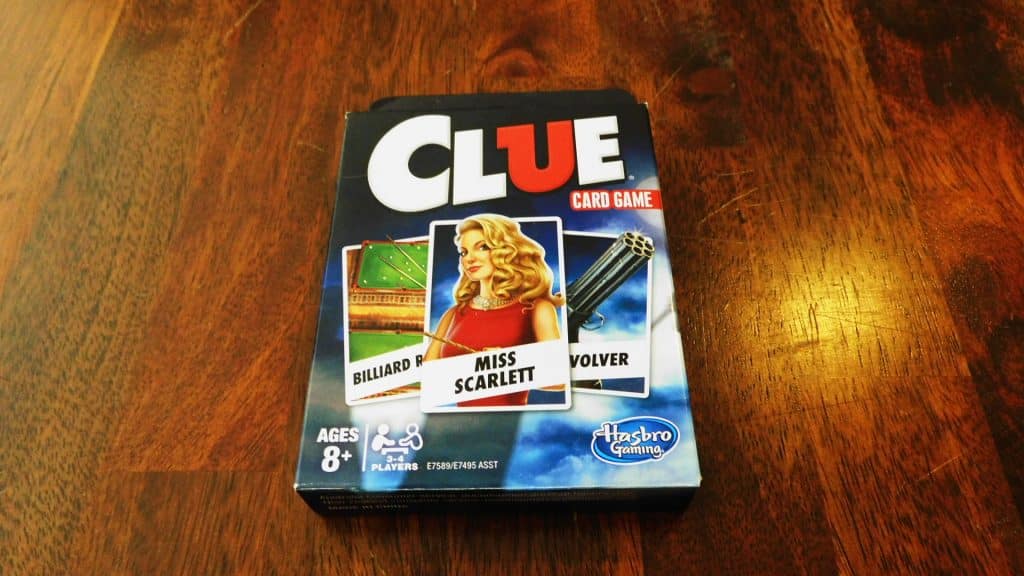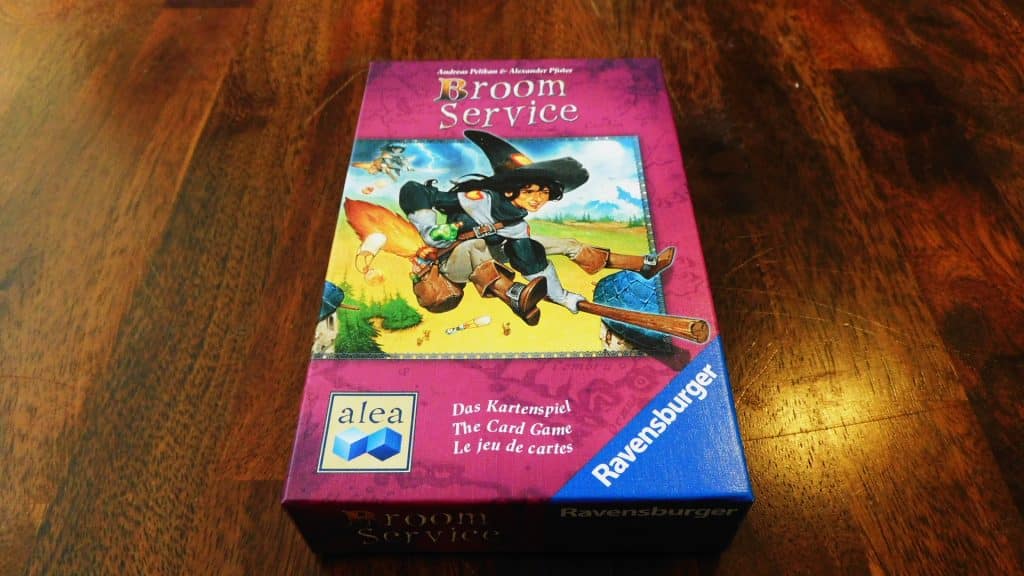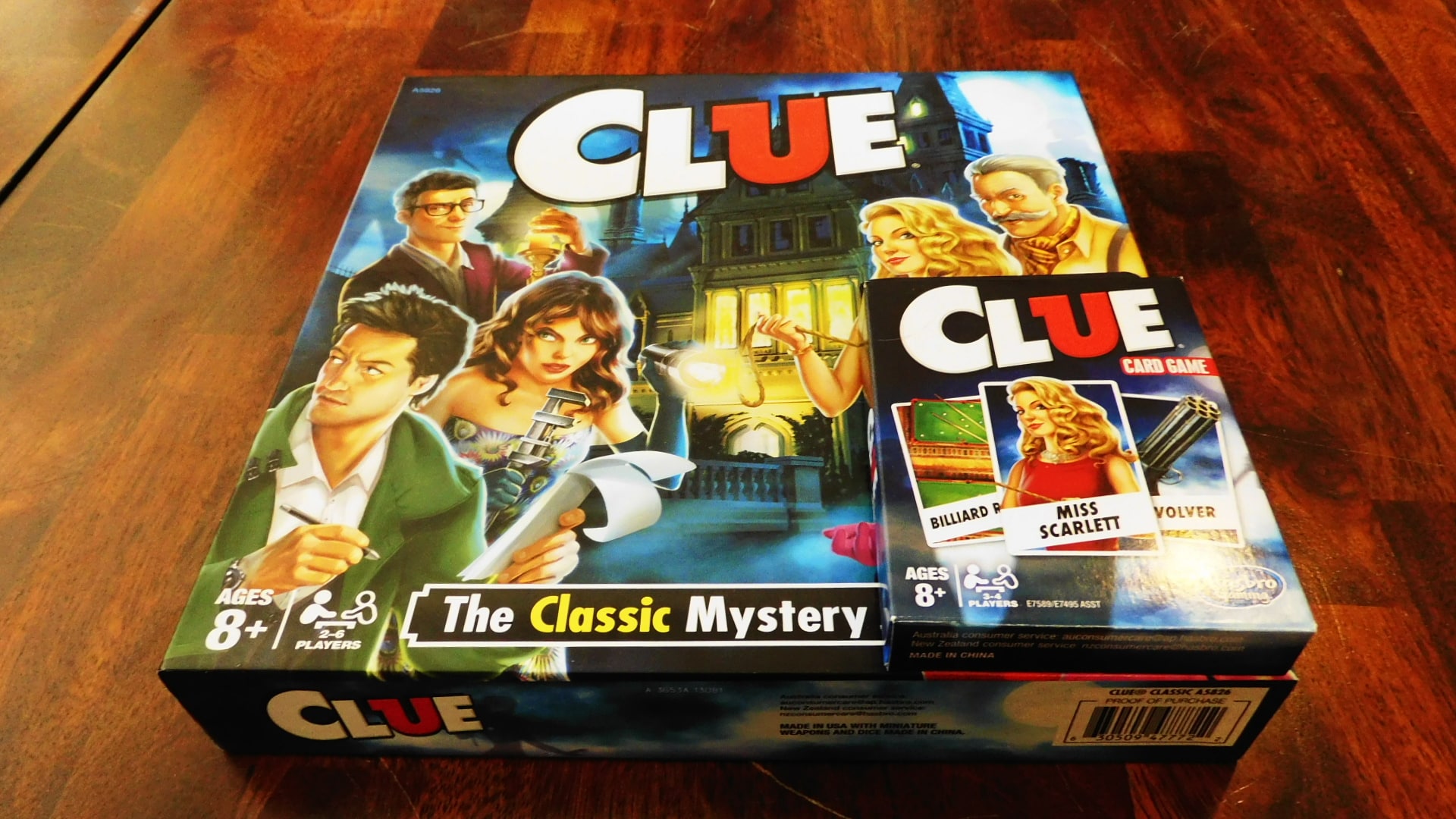Ever seen a card game version of a board game and wondered why a board game company made it? Well, I have too for many, many years now. So, I decided to take a crack at answering this, and this is my answer to why board game companies make card game versions of board games.
Board game companies make card game versions of board games because they’re usually quicker to play, provide a fresh take on a similar experience, and they make more money for the board game companies for popular games.
Table of Contents
- My Credentials/Research For This Topic
- What Are Card Game Versions Of Board Games?
- What’s The Point Of Card Game Versions Of Board Games?
- Why Do Board Game Companies Make Card Game Versions Of Board Games?
- Will Card Game Versions Always Say They’re The Card Game?
- When Do Card Game Versions Come Out After Board Games?
- Are Card Game Versions Better Than The Board Games They’re Based On?
- What Are Some Examples Of Card Game Versions Of Board Games?
- Did You Know?
- Conclusion: An Opinion On Why Board Game Companies Make Card Game Versions Of Board Games
My Credentials/Research For This Topic
So…here’s the thing. I’ve been playing and learning about board games since roughly 2012. At least in a deeper way. I’ve been playing them since I was a kid, but I was just playing them so I could be doing something fun, not because I was deeply involved with board games.
For this topic, I was certain I would find plenty of research about why board game companies make card game versions of board games. I didn’t.
I’m also not a designer, publisher, artist, consultant, or anything else for board games.
Basically, what I’m saying is, take everything I say here with a grain of salt. This is an opinion piece more than something based on cold, hard facts. Hence why I also included the word, “opinion,” in the title.
What you can be certain of though is that I am taking my time with this piece. I’m not just throwing explanations at the wall and hoping they’ll stick. I’m genuinely trying to think about what I know about the board game industry, companies in general, and my experience with board games and card games.
And hopefully, all of that comes together in a way to provide you with some excellent, if not completely exact, value. So, with all that said, here are my thoughts on why companies make card game versions of board games.
What Are Card Game Versions Of Board Games?

Have you ever played a board game you liked, for example, Clue? Even if you don’t like Clue, which it’s totally okay if you don’t, pretend you do for this example, haha. Anyway, you like the game and decide to keep it in your collection. You play it with friends and family, and it’s a great time. Wonderful, right?
Then one day you notice there’s another version of the game in stores (by the way, Clue has over 100 versions!). This one is called Clue: The Card Game. If you’re like me, your first reaction is, “Why?” Also, if you’re like me, your second reaction is, “I’d like to give that a shot and see if it’s any good or if it’s just a cheap way to make a profit.”
And honestly? Both are likely true.
What’s The Point Of Card Game Versions Of Board Games?
This is where we start to get into the opinion part of this piece. Just what is the point of card game versions of board games? Another way to think of that question is why would you get a card game version of a board game?
This is actually the same question I had about travel editions of board games, such as Connect 4 Grab & Go. And this is when I started to confront my own prejudices and ignorance about different versions of board games.
My Background With Board And Card Games
You see, for a long time, I never wanted different versions of board games. In my mind, the version I picked was the best version (it was also usually the most expensive and complete version). Typically, that was the board game version along with all its expansions.
I also used to only purchase genre-based (fantasy, sci-fi, etc.) and thematic board games that didn’t have complex rulesets but did have more than a few rules. These were games such as Libertalia (the original edition, although I’m linking to the new edition here since it’s more readily available and looks better overall), Mansions Of Madness (the original edition, although I’m linking to the second edition since it’s better), Infiltration, and so on.
I did play other games too though. Games such as 6 Nimmt!, Linko!, Cloud 9 (the original version of Celestia, which has much better art, and which I’m linking to here), and so on.
But to me, if a game started out as a board game and was a good one, there was no need for a card game. The reverse was also true. If a game started out as a card game and it was a good game, it didn’t need to be a board game or a dice game or whatever other versions the company might come up with.
This was also how I felt about roll-and-write games for a while too.
Life Changes
But lately, as in the past couple of years, my free time has grown shorter and my friend group has changed with their free time also growing shorter. So, as a result, the games I buy and play have also changed.
To be clear, I still play those longer, thematic games I mentioned above. I still love Rising Sun, Blood Rage, and buy games like Dinosaur World and Return To Dark Tower. I love the experiences I know they can provide, but I recognize those experiences come with time. Time I have to invest prior to the game learning them and time my friends and I have to invest during the game.
Besides, sometimes getting together isn’t about the experiences the games provide but rather the experiences you have with your friends and family. The game is a catalyst for conversation, laughter, and overall good times. In short, I don’t get to see my friends and family as much as I used to, so sometimes a game on the table is a good way to have something to do while we meet, catch up, and enjoy each other’s company.
So, what does all of this have to do with card game versions of board games? Well, it ties directly into the first reason I think board game companies make card game versions of board games: time.
Reason One: Time
You can probably figure this out on your own, but just in case you’re not sure why time is a reason board game companies make card game versions of board games, I believe it’s because card games are shorter than board games.
Let’s go back to the Clue example. Clue takes anywhere from 30 minutes to an hour. Maybe more depending on how the game unravels. Now, take away the roll-and-move mechanic, take away the setup for the game board, and so on. What you’re left with is Clue: The Card Game.
When it’s your turn, you ask about two pieces of evidence. For example, you could say, “Mr. Green and the revolver,” or, “the kitchen and the billiards room.” The first player to your left checks if they have one or both, then slides you one or says they have neither. If they say they have neither, the next player checks, and so on.
On your turn, you can make an official accusation, saying who committed the crime, where, and with what. If you’re right, you win.
All of this takes place with cards and nothing else.
Unfortunately, Clue: The Card Game doesn’t provide an estimate about how long it takes anywhere on the game box or in its rulebook, but you can imagine this plays much faster than a regular game of Clue.
And time is definitely one area where card games shine. They’re just faster overall. There are fewer components to worry about and mess with, less setup time, less time packing everything up, fewer rules to explain, fewer mechanics to think about, and so on.
But there’s another reason too, which is that they provide a similar experience in a new way.
Reason Two: A Similar Experience In A New Way
Imagine you’re playing your favorite video game. Maybe that video game is Elden Ring, which just so happens to be my current favorite video game. Now imagine you’ve pumped hundreds of hours into that video game. You’ve seen all the endings, tried as many classes as you care to try, tried different builds, different routes, and so on and so on.
Eventually, the game will lose its luster for you. And you might find yourself thinking, “Man, I really love this game, but I’ve seen everything it has to offer dozens of times over. I wonder if they’ll ever release a new version someday?” Now, if you know anything about video games, the answer to this question is both yes and no.
All kinds of games get rereleased, such as remakes, remastered versions, spinoffs, and so on. Just within the line of games that led up to Elden Ring, you have Demon’s Souls, Dark Souls, Dark Souls II, Dark Souls III, Bloodborne, Sekiro, Demon’s Souls Remake, Dark Souls Remastered, Dark Souls: Prepare To Die Edition, and Dark Souls Trilogy, among others. Many of these are iterations of a similar formula, feel, and even world.
And each time one comes out, it’s like getting a breath of fresh air. Even if the game is flawed, such as with Dark Souls II (I still love you though, Dark Souls II), it’s still new content, a fresh take on the same thing, and so on.
Card games do the same thing for board games. Maybe you’ve played Clue so many times you’ve lost count. So, maybe you’d like to try it in a new way. You could try one of its many, many other versions, including the card game version. Either way, you get the same experience in a new way.
Why Do Board Game Companies Make Card Game Versions Of Board Games?
Now, the above sections talk about the point of card game versions for board games, but why do companies make them? You can probably figure this out already, but if you look at the list of card game versions of board games in a few sections below, you’ll see a lot of big hits.
The answer to this question is the same as why movie studios make sequels to popular movies: money.
I don’t mean to be so cynical with this answer, and I imagine, especially within the wholesome community that is the board games community, that’s not the only reason most board game companies make card game versions of their board games, but it is a big one. Even if they wanted to make a card game version of a board game for those other reasons, there would still have to be a financial reason to do so. So, yeah, profit is why they do this.
Will Card Game Versions Always Say They’re The Card Game?

Before writing this post, I would’ve told you yes. But, as it turns out, that’s not always the case. Sadly, it would take an excessive amount of time to figure out which games and all their many versions don’t say “Card Game” on the front, maybe even on the back too, but at least one example that comes to mind is Broom Service: The Card Game. It doesn’t say “card game” anywhere on the box! How confusing is that?!
When Do Card Game Versions Come Out After Board Games?
Typically, they will come out after the board game has been released. Without knowing any specific facts, I’d guess they come out once the original board game has sold well but has gotten to the point that a card game version will boost and not interfere with those sales. Other than that, it just depends on the companies making the games when they want to release them.
Are Card Game Versions Better Than The Board Games They’re Based On?
This is a difficult question to answer, in part, because it’s also based on opinion. For example, you may love the original version of a game, such as I do with Colt Express. So, when the card game version comes out, you completely ignore it, never finding out if it’s better or not.
Others may start with the card game, enjoy it, and not see why they should get the full board game version. And yet others still may try both and find joy in both or in neither.
As with board games, it’s entirely up to you, your game group, and what kind of experience you’re looking for. My best recommendation is to think about these things, do some research, and see what will work best for you.
What Are Some Examples Of Card Game Versions Of Board Games?
Here are some examples:
- The Castles Of Burgundy: The Card Game
- Clue: The Card Game
- Connect 4: The Card Game
- Guess Who?: The Card Game
- Monopoly Bid
- Broom Service: The Card Game
- Camel Up Cards
- Super Colt Express
- San Juan (the card game version of Puerto Rico)
- Rivals For Catan 2-Player Card Game
- Power Grid: The Card Game
- Monopoly Deal Card Game
- Ticket To Ride: The Card Game
There are assuredly more, but these are some good examples of card game versions of board games.
Did You Know?
(Each time you refresh the page you will get a new “Did You Know” fact!)
Did you know that Pachisi/Parcheesi/Ludo inspired more games too? As it turns out, both Sorry and Trouble are variants of the originals. Really cool!
Conclusion: An Opinion On Why Board Game Companies Make Card Game Versions Of Board Games
Was that more than you were expecting for this article? Either way, I hope you had as much fun reading it as I did writing it. This turned out to be a delightful piece to work through!
So, now that I’m done, what are your thoughts on why board game companies make card game versions of board games? Let me know in the comments below!
And, as always, keep on gaming, fellow board gamers.

